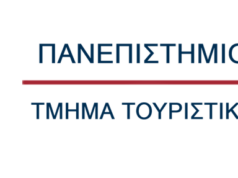 Barely a year has passed and a new generation of travel technology has emerged. Then as now, being part of the mobile internet, one that has made the dream come true of being able to book trips anywhere, anytime, and that of a mobile travel companion, requires a huge creative effort on the part of the industry. Regardless of developments in the world of mobile travel pages and travel applets, leading enterprises are renewing their efforts to see how they can increase sales by marketing non-tourism related products and services. Ancillary services are what the technology world must deliver in 2011.
Barely a year has passed and a new generation of travel technology has emerged. Then as now, being part of the mobile internet, one that has made the dream come true of being able to book trips anywhere, anytime, and that of a mobile travel companion, requires a huge creative effort on the part of the industry. Regardless of developments in the world of mobile travel pages and travel applets, leading enterprises are renewing their efforts to see how they can increase sales by marketing non-tourism related products and services. Ancillary services are what the technology world must deliver in 2011.
Demand for ancillary services in 2011
The idea of offering ancillary services is not new. It is currently gaining huge momentum and is on its way to becoming a management agenda priority. In coming years it will influence business models. Many of the ancillary services that up to now have been part and parcel of the price of a flight or accommodation (guaranteed seating, lounge area access, in-flight/in-room entertainment, spa visits with towels and body care packages etc.) are to be taken out and turned into independent sources of making money. The aim is to improve revenues and corporate results, and once again it will put the IT systems of airlines, global distribution systems, tour operators, service providers and travel agencies to the test. “Selling ancillary services will completely redefine travel marketing and sales“, PhoCusWright states in its Ancillary Services Report from June 2010. The topic will also be addressed at this year’s PhoCusWright@ITB Convention, which takes place on 9 March in Hall 7.3. What is more, selling third party services is to become more professional. According to a survey by Amadeus entitled Cross-Sell Your Way to Profit (2011), by the year 2015 cross selling revenues will have grown by 30 per cent, a rate ten times faster than the travel market itself.
For the first time in years this will lead to business driving technology again, instead of vice-versa. Up to now few systems have been able to present a clear picture of the many types of travel services, non travel-related services and price scales offered by providers, nor have they been able to dynamically display, bundle or put prices on them for customers depending on their status (what company they belong to, what job they hold, customer retention programme etc.) and depending on their individual preferences. Most of all and in particular this fails whenever someone requires an ancillary or third party service not just when they book a trip, but during the trip itself (as with on-demand videos for example).
Newcomers, plus major players return to ITB Berlin
Retail sales structures are becoming an increasingly integral part of the tour operator business. This broadens the focus and strengthens the influence of technology companies in the tourism sector, a trend that will be most noticeable at ITB Berlin 2011. The Travel Technology Hall (6.1) was already booked up months ago. Hall 7.1.c will not only be presenting mobile travel services. The eTravel World Forum here also represents a theme-specific, innovative networking and presentation platform. Hotel systems providers will be occupying nearly all the available space in Halls 8.1, 9 and 10.1. The substantial number of newcomers (ten alone in Hall 6.1, including major names such as Peakwork and Vilauma) is proof that the travel technology market continues to grow apace.
“Naturally we are delighted that so many new exhibitors from abroad have decided to come, and that leading names such as Amadeus, Openjaw and Venere.com have returned after a prolonged absence“, said David Ruetz, Head of ITB Berlin. “It shows us that ITB Berlin has achieved something that fairs which are focused exclusively on tourism or travel technology are unable to do: it establishes an essential link between business and technology – brings together travel and technology companies from around the world, enabling the best possible coordination of processes and instruments, supply and demand.“











